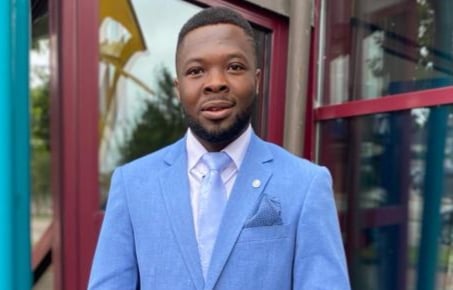Rexford Osei Owusu, a Ghanaian scholar pursuing a doctorate in Metropolitan Planning, Policy, and Design at the University of Utah, is at the forefront of research exploring green space inequities in US cities. His work, grounded in a deep understanding of urban planning and environmental justice, sheds light on the systemic factors that have historically limited access to green spaces for underserved communities. Owusu’s research not only diagnoses the problem but also offers innovative solutions for creating more equitable and inclusive urban environments. While his focus is primarily on US cities, the insights gleaned from his research hold significant relevance for rapidly urbanizing cities in Ghana and other parts of the world, bridging global research with local application.
Owusu’s recent study, published in the Journal of Planning Literature and co-authored with environmental justice expert Dr. Alessandro Rigolon, provides a comprehensive analysis of the historical and socio-economic forces that have shaped green space distribution in US cities. The research reveals how discriminatory practices such as racially biased zoning policies and unequal resource allocation have created a landscape where access to parks, greenways, and other green spaces is disproportionately concentrated in affluent neighborhoods, leaving marginalized communities with limited access to these vital resources. This echoes global patterns where access to nature and its benefits is often stratified along lines of race and socioeconomic status.
Beyond identifying the root causes of green space inequity, Owusu’s work emphasizes the importance of community engagement and participatory planning in addressing the problem. He advocates for a shift away from top-down planning approaches towards models that empower local communities to actively shape the design and management of green spaces in their neighborhoods. This participatory approach ensures that the development of green infrastructure reflects the specific needs and priorities of the communities it serves, fostering a sense of ownership and promoting social cohesion. His research underscores the need to dismantle structural barriers and redirect resources towards underserved neighborhoods, recognizing that equitable access to green space is not merely an amenity but a fundamental right.
The implications of Owusu’s research extend beyond the realm of academic discourse. His work has direct relevance for urban planning practice and policymaking. Owusu collaborates with urban planners, policymakers, and environmental organizations to translate his research findings into actionable strategies. He champions the development of green infrastructure projects that prioritize equity and inclusivity, advocating for policies that ensure equitable access to natural resources as a cornerstone of environmental justice. His engagement with practitioners underscores his commitment to effecting real-world change and bridging the gap between research and implementation.
Owusu’s focus on green space equity is particularly pertinent to rapidly urbanizing cities in Ghana, his home country. As Ghanaian cities grapple with the challenges of rapid growth and development, ensuring equitable access to green spaces becomes paramount. These spaces provide vital ecosystem services, contributing to improved air and water quality, mitigating the urban heat island effect, and offering opportunities for recreation and social interaction. By applying the insights gained from his research on US cities, Owusu contributes to the development of locally relevant solutions for promoting environmental justice and sustainable urban growth in Ghana.
The significance of Owusu’s research lies in its holistic approach to understanding and addressing green space inequities. He not only identifies the historical and systemic factors that have perpetuated these inequities but also proposes concrete solutions grounded in principles of justice and inclusivity. His work highlights the crucial role of green spaces as essential infrastructure that supports public health, fosters social cohesion, and enhances environmental resilience. By advocating for equitable access to these resources, Owusu empowers marginalized communities and promotes a vision of urban development that prioritizes the well-being of all residents. His research serves as a roadmap for cities seeking to build healthier, more equitable, and sustainable futures, demonstrating the transformative power of scholarship in addressing real-world challenges.














